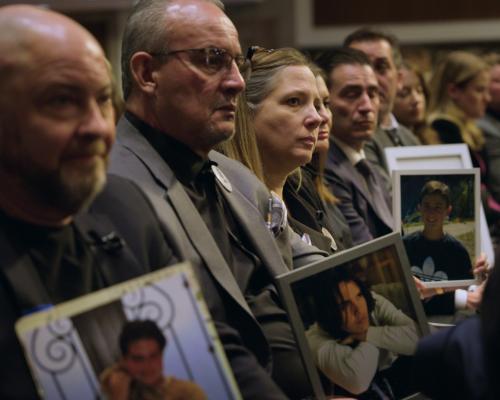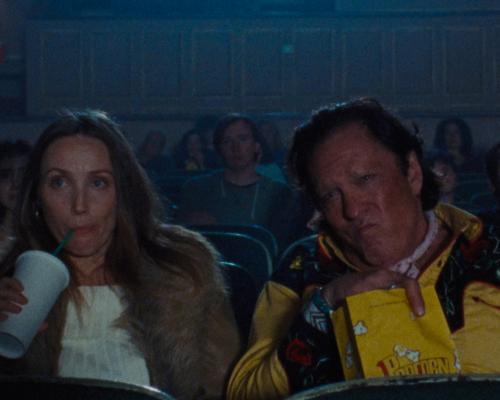
“Tweens are herd animals” and have “an addicts’ narrative”, according to internal documents revealed by a Facebook whistleblower to congress, making clear the levels of cynicism and obfuscation the company operates with in its quest to hook young people to its platform. Bad though that is, it’s not the worst example in this lucidly laid out and often harrowing indictment of social media’s ruthlessness; that would be the proliferation of drug dealers on Snapchat, which the company seems to have to some extent turned a blind eye to in the scramble to expand its user base.
Based on the investigative work of Bloomberg journalist Olivia Carville, this film covers the attempts of minnow legal outfit Social Media Victims Law Center to net the sharks of Silicon Valley. It represents a host of families who have suffered heartbreaking losses due to unpoliced extreme online content: children and teenagers who fatally copied auto-asphyxiation or pro-suicide videos, ones who killed themselves after falling victim to sextortionists, or who overdosed after buying off-prescription meds from predatory dealers. The battle here is to overcome section 230, a get-out clause in the 1996 Telecommunication Act that gives social media companies immunity for third-party-generated content. Of course, Mark Zuckerberg was still slurping Slush Puppies back then.
Matthew Bergman, the center’s founder, twice makes the analogy with cigarette companies, arguing that social media companies knowingly prioritise profit over the health of their users. If the film is clear about this causation and the resulting damage, it is not a given that the team can make a longer leap: from establishing a degree of culpability in individual cases and getting justice and closure for these families, to proving that the tech companies systematically predicate their algorithms on fanning our most negative tendencies and impulses. The big victory here is stopping the Snapchat case being dismissed due to section 230; more of a minor triumph that shows the scale of the mountain, but you have to start somewhere. This is a vital piece of public-interest journalism clearly spelling out what we all vaguely intuited.
• Can’t Look Away is in UK cinemas and on Jolt from 8 August
• In the UK, the youth suicide charity Papyrus can be contacted on 0800 068 4141 or email pat@papyrus-uk.org, and in the UK and Ireland Samaritans can be contacted on freephone 116 123, or email jo@samaritans.org or jo@samaritans.ie. In the US, the National Suicide Prevention Lifeline is at 988 or chat for support. You can also text HOME to 741741 to connect with a crisis text line counselor. In Australia, the crisis support service Lifeline is 13 11 14. Other international helplines can be found at befrienders.org







